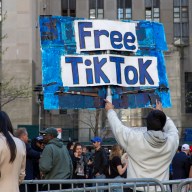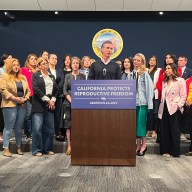 President John F. Kennedy and his wife Jacqueline, shortly before his assassination in Dallas on Nov. 22, 1963.
President John F. Kennedy and his wife Jacqueline, shortly before his assassination in Dallas on Nov. 22, 1963.
Credit: Getty Images
Half a century later, historians of John F. Kennedy have shifted their focus from the events of his assassination on Nov. 22, 1963, to imagining the impact of a presidency that could have been.
“He would be seen as significant, but without the aura,” says Robert Dallek, Kennedy historian and author of several books on JFK. “We probably wouldn’t be talking about him now.”
For some, the Cuban Missle Crisis, which transformed Kennedy from a Cold War hawk into the peace-mongering author of the first Nuclear Test Ban Treaty in 1963, is evidence that, today, he would be pursuing world peace.
“Kennedy became determined to avoid conflict with the Soviet Union and China,” says Dallek. “The new dialogue with the Kremlin and the Test Ban Treaty were a measure of how he was trying to wind down the Cold War. If he had lived, we would have had detente sooner than we got it under Richard Nixon.”
Many say Kennedy would have won the 1964 presidential election, having enjoyed a 70-percent approval rating. He also had a good chance of securing the Democratic majority in Congress, as his successor Lyndon Johnson did. That would have given him freedom from the Southern Republicans pressuring him to halt civil rights reforms, and his own advisers pushing for war with communist dictatorships.
That freedom would have extended to the Vietnam War, says Jeff Greenfield, author of “If Kennedy Lived.” “He was saying, ‘I can’t do anything until I’m elected, but after that I’m looking for a way out (of Vietnam).’”
Biographer Thurston Clarke claims Kennedy would have moved faster, “removing 1,000 advisers from Vietnam by the end of 1963.”
Dallek says America’s social revolution in late 1960s, when racial and sexual movements converged, would have been “less pronounced” had JFK stopped Vietnam. “The war provoked those divides in society; there wouldn’t have been that level of unrest.”
Without anger over Vietnam, Richard Nixon may not have been elected to stop the war. If so, the seediest episode in presidential history, when Nixon resigned over the Watergate scandal, would have been avoided.
Still, others say Kennedy may have struggled if re-elected.
“The press were becoming suspicious of his affairs,” said Greenfield, speculating that his infidelities would have become public and ruined him. His management of Addison’s disease would also have been difficult, he said.
















